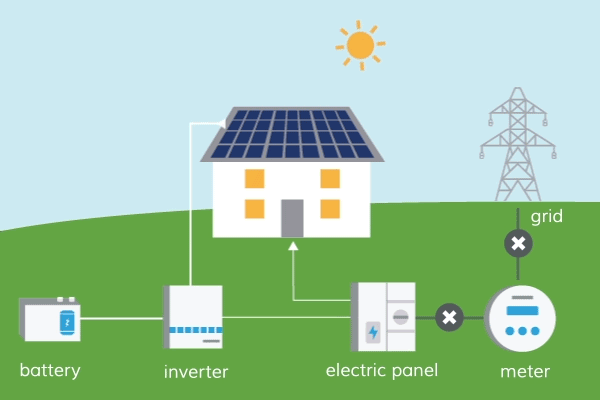What is solar power?

A power generation method that converts energy from the sun into electricity. It uses solar panels that are often arranged on a building or concentrated in solar farms to facilitate a reaction that converts sun’s light radiation into electricity.
How do solar panels work?

Photovoltaic cells in a solar panel turn sunlight into direct current electricity (DC). Then, an inverter converts the DC electricity into alternating current electricity (AC), and once this process has taken place, the electricity is used, fed into the grid or stored in a battery.
Are solar panels expensive?

The cost depends on the number of panels and how/where they are installed, but generally, solar power is becoming more affordable every year. Solar power is the crucial future production method in the move to clean energy, and as economies of scale drive prices down, its importance will only increase
What are the advantages of solar power?

The main advantage is that it is a renewable, clean source of electricity. Solar power is also scalable. This means that it can be deployed on an industrial scale, or it can be used to power a single household. When it’s used on a small scale, extra electricity can be stored in a battery or fed back into the electricity grid. Overall, the sun gives off far more energy than we’ll ever need. The only limitation is our ability to convert it to electricity in a cost-effective way.
